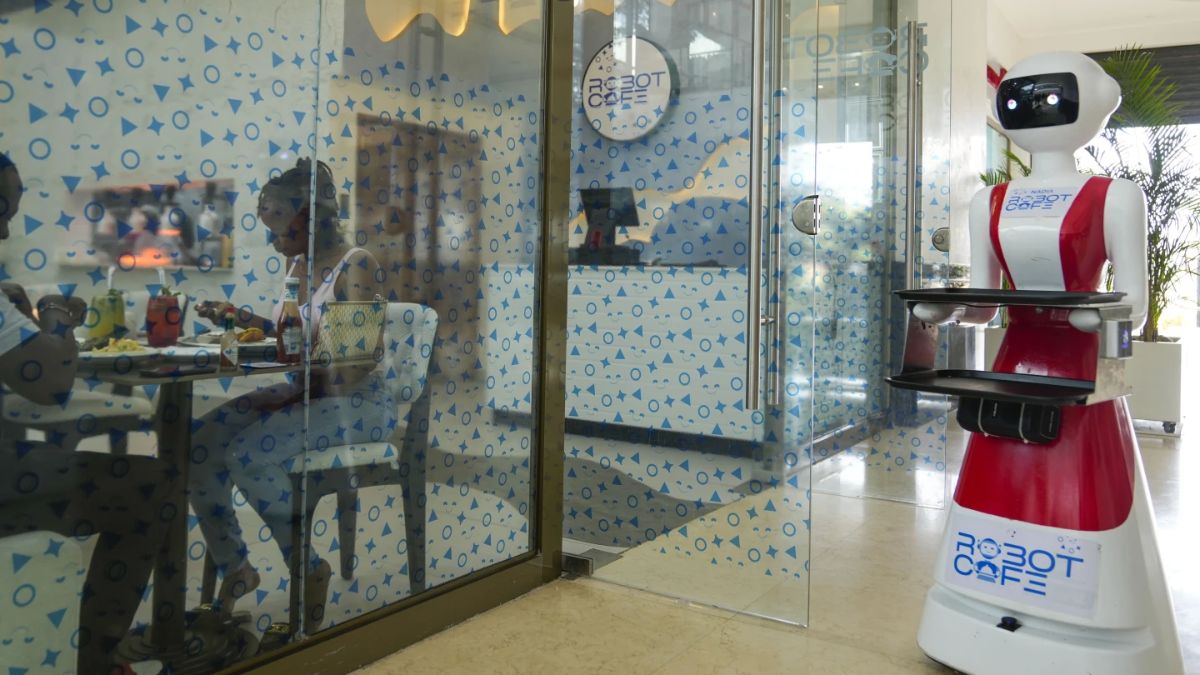"Dream, Dream, Dream! Conduct these dreams into thoughts, and then transform them into action."
- Dr. A. P. J. Abdul Kalam
"Dream, Dream, Dream! Conduct these dreams into thoughts, and then transform them into action."
- Dr. A. P. J. Abdul Kalam
3 Sep 2024
Robots provide food to customers at Nairobi's Robot Cafe, an innovative East African restaurant that combines modern technology with customary service. Despite the hefty price, owner Mohammed Abbas was inspired by foreign robotic services. Human servers are still necessary for some jobs. According to experts, human and robotic services may coexist in the hospitality industry.
Customers are being captivated by a novel dining experience in Nairobi, the capital of Kenya and a growing tech area dubbed the "Silicone Savanna." Children chuckle and guests excitedly record as robots move through the Robot Cafe, bringing freshly made meals on their built-in trays. Three robots serve food alongside human waiters at this cafe, which is thought to be the first of its kind in Nairobi and East Africa. This innovative fusion of technology and tradition makes the cafe special.

(Source: Google Images)
Owner of the cafe Mohammed Abbas presented the robots, who go by the names Claire, R24, and Nadia. He was inspired by similar services he saw in Asia and Europe. Abbas feels the investment in importing the robots has paid off, despite the fact that it was an expensive endeavor. "It was very expensive to import the robots," he admits, adding that the restaurant is often packed with inquisitive patrons hoping to get a close-up look at robot assistance.
Interest in robot services has grown significantly due to its novelty. Packson Chege, one of the customers, called the event "unique," saying it was unlike anything he had ever seen in Kenya. The robots are preprogrammed to say, "Your order is ready, Welcome," before patrons push an exit button to retrieve their food, even though they are unable to carry on entire discussions.
)
(Source: Google Images)
Even with the advancements in technology, human servers are still crucial to the cafe's functioning. They manually place food on the robots' trays while taking orders from clients who would rather not use the online ordering method. The fact that drinks are still served in person shows how crucial interpersonal communication is to the dining experience.
The use of robots in the hospitality sector has spurred debates about the nature of the workforce in the future, especially in Africa, where the median age of the population is 19 years old. John Kariuki, the cafe's manager, is keen to point out that the robots do not take the place of human employees. He clarifies, “The robots are never able to completely perform all the services that are supposed to be ongoing in the restaurant without the human touch.”

(Source: Google Images)
Expert in the hospitality sector Edith Ojwang believes that human and robotic service can coexist. According to her, "the hospitality industry is very diverse." Some of our clients will want robotic service and total automation, while others will value the warmth and personal touch that come with providing human service. Because the clientele in the hospitality industry is so diversified, it does not pose a complete threat to human labor.